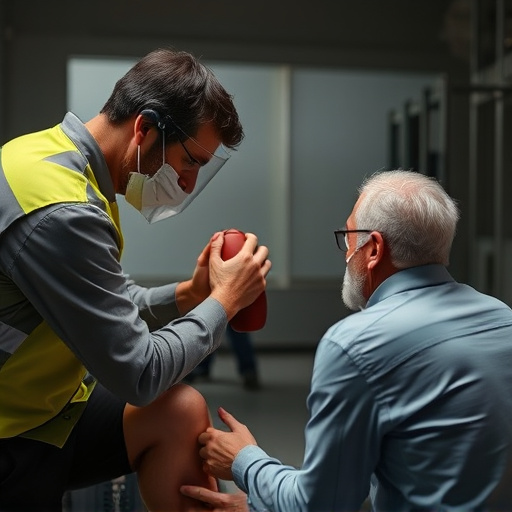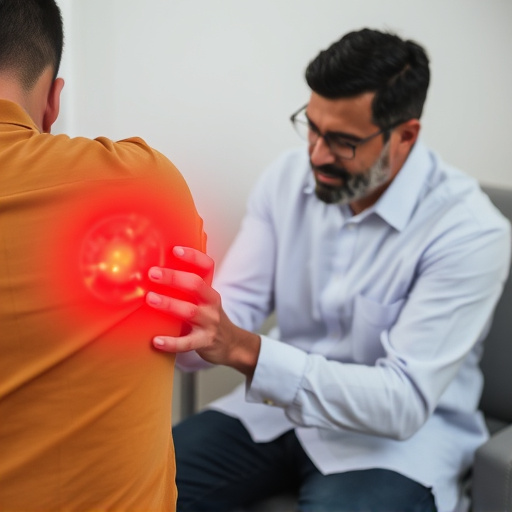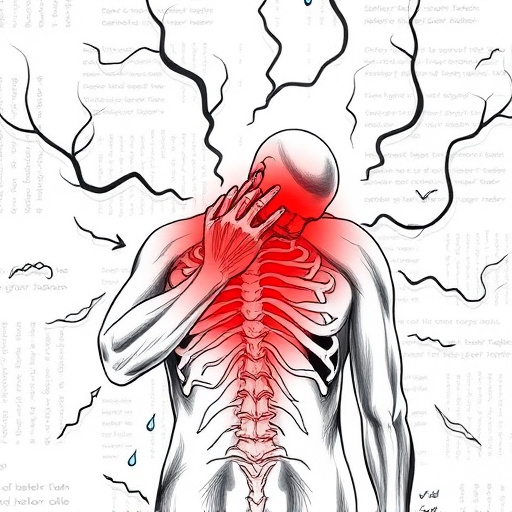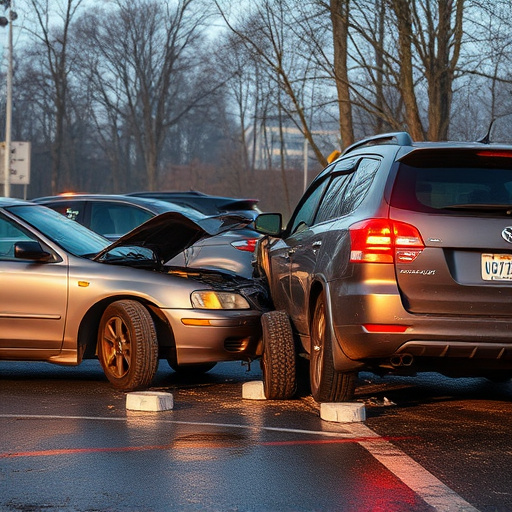Motor vehicle accidents (MVAs) can cause both immediate injuries like whiplash and fractures, as well as long-term issues such as chronic pain and reduced mobility. Effective motor vehicle accident care distinguishes between short-term medical attention for acute injuries and long-term rehabilitation focusing on chronic pain management, improved mobility, and psychological well-being. Specialized programs utilize chiropractic care, lifestyle modifications, and tailored exercises to address both immediate needs and potential future complications, ultimately enhancing recovery outcomes and improving patients' quality of life post-accident.
In the aftermath of a motor vehicle accident (MVA), understanding the long-term outcomes is crucial for effective care and rehabilitation. While immediate medical attention addresses short-term impacts, transitioning to comprehensive, evidence-based care programs is essential for lasting recovery. This article delves into the contrasting effects of MVA care—from acute reactions to persistent symptoms—and highlights the significance of multidisciplinary approaches, including physical therapy, mental health support, and community resources, in fostering post-accident healing and enhanced long-term well-being.
- Short-Term vs Long-Term Impact of Motor Vehicle Accident Care
- – Understanding the immediate effects and their transition to long-term consequences
- Comprehensive Care Programs for Better Outcomes
Short-Term vs Long-Term Impact of Motor Vehicle Accident Care

Motor vehicle accidents can have a profound impact on individuals’ lives, and understanding the distinction between short-term and long-term effects is crucial when considering motor vehicle accident care. Initially, victims often experience acute injuries, requiring immediate medical attention and treatment for conditions like whiplash, fractures, or internal bleeding. These initial stages of care are vital to stabilising the individual and preventing further complications.
However, as recovery progresses, the focus shifts towards long-term motor vehicle accident care, which addresses the potential for chronic pain relief, improved mobility, and psychological well-being. Neck pain relief and headache relief are common concerns that can persist if not adequately managed. Long-term programs aim to rehabilitate individuals, offering solutions for ongoing issues such as persistent neck stiffness, headaches, or even cognitive changes. Through specialised treatments, these programs seek to enhance recovery outcomes, ensuring victims not only survive but thrive after a motor vehicle accident.
– Understanding the immediate effects and their transition to long-term consequences

Motor vehicle accidents can have immediate physical consequences, from whiplash to broken bones and soft tissue injuries. However, these initial effects often transition into long-term outcomes that require sustained care. What starts as seemingly minor pain or discomfort may evolve into chronic conditions if not properly managed. This is where specialized motor vehicle accident care programs step in, focusing on not just immediate treatment but also proactive strategies for injury rehabilitation and sports injury recovery.
Chiropractic treatment, a common component of these programs, can play a significant role in managing both the acute pain and potential long-term effects of accidents. By addressing issues like misaligned vertebrae or chronic muscle tension, chiropractic care aims to restore mobility and alleviate symptoms that may persist for months or even years after the initial incident. These comprehensive programs also incorporate education on injury prevention, lifestyle modifications, and exercises tailored to individual needs, empowering individuals to take an active role in their recovery and well-being.
Comprehensive Care Programs for Better Outcomes

Comprehensive care programs have been recognized as a game-changer in improving long-term outcomes for individuals post-motor vehicle accidents. These programs go beyond traditional treatment models by integrating various specialized services under one roof. By offering a holistic approach, comprehensive care ensures that every aspect of an individual’s recovery is addressed, from immediate medical stabilization to long-lasting pain management and functional rehabilitation.
In the aftermath of a motor vehicle accident, victims often face complex challenges such as physical injuries, cognitive impairments, and emotional trauma. Comprehensive care programs tailor their services to cater to these diverse needs. Pain management strategies, for instance, play a crucial role in helping individuals cope with chronic pain associated with whiplash or other injuries. Simultaneously, functional rehabilitation focuses on restoring mobility, enhancing strength, and improving overall functionality, ensuring that patients regain control of their daily lives. This multifaceted approach not only accelerates the recovery process but also promotes better adherence to rehabilitation routines, ultimately leading to improved quality of life outcomes.
Motor vehicle accidents can have a profound impact on individuals, with short-term injuries often evolving into complex, long-term health issues. Comprehensive care programs that address immediate and ongoing needs are crucial in mitigating these outcomes. By focusing on holistic treatment, rehabilitation, and access to specialized services, these programs enhance recovery and improve the overall quality of life for accident survivors. Understanding the long-term implications and implementing effective care strategies can significantly shape positive post-accident experiences.














